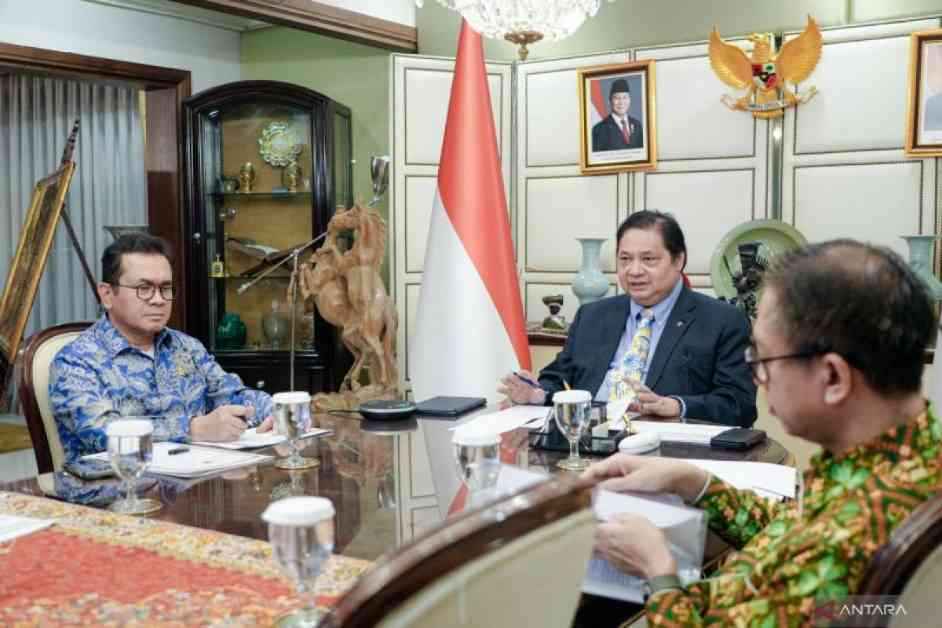Coordinating Minister for Economic Affairs, Airlangga Hartarto, recently underscored Indonesia’s dedication to swiftly finalize negotiations on the comprehensive economic partnership agreement (CEPA) with the European Union. During a virtual meeting with EU Trade Commissioner Maros Sefcovic, Hartarto emphasized the critical need for both parties to expedite the negotiation process. He highlighted that this completion would not only create fresh opportunities for Indonesia and EU member states to enhance their trade and investment levels but also pave the way for increased economic cooperation between the two entities in the face of evolving global challenges.
Acknowledging the existence of several outstanding issues in the negotiation process, Hartarto assured that Indonesia remains committed to keeping investment opportunities open. He expressed optimism that the finalization of the IEU-CEPA would attract investors from the EU to explore the Indonesian market, fostering a more robust economic relationship between the two regions. The signing of the IEU-CEPA is expected to deepen economic ties and bring about mutual benefits for Indonesia and the EU.
Commissioner Sefcovic echoed the sentiment, stressing the importance of maintaining momentum in discussions to establish a realistic timeline for concluding the IEU-CEPA negotiations that satisfies both parties. He highlighted that the distinct market and economic structures of the EU and Indonesia could present additional market openings. Against the backdrop of global trade conditions characterized by tariff disputes, Sefcovic emphasized the need for an effective mitigation strategy to ensure the seamless flow of trade and investment between Indonesia and the EU.
The EU bloc has committed to finalizing the IEU-CEPA negotiations by the first half of 2025. Over the course of nine years, nineteen rounds of negotiations have already taken place, reflecting the complexity and importance of the agreement. The IEU-CEPA serves as a comprehensive bilateral trade pact between Indonesia and its partner countries in the European Union, focusing on three primary pillars: market access for trade in goods and services, investment and public procurement, and the alignment of trade regulations, alongside cooperation and capacity building efforts.
###
Opportunities for Collaboration
As the negotiations for the IEU-CEPA continue, the potential for enhanced collaboration between Indonesia and the EU becomes increasingly apparent. The agreement not only aims to boost trade and investment but also to foster stronger ties between the two regions. By aligning market access, investment regulations, and trade practices, the IEU-CEPA sets the stage for a more integrated economic relationship that can withstand the challenges of the global market.
###
The Road Ahead
Looking ahead, both Indonesia and the European Union face the task of navigating the final stages of the IEU-CEPA negotiations. As they work towards a mutually beneficial agreement, the commitment of both parties to overcoming obstacles and seizing opportunities remains paramount. The successful conclusion of the IEU-CEPA would not only signify a landmark achievement in economic diplomacy but also signal a new chapter in the partnership between Indonesia and the EU, built on shared goals and aspirations.
In conclusion, the urgency to finalize the IEU-CEPA negotiations underscores the importance of economic cooperation in a rapidly evolving global landscape. By leveraging the strengths and opportunities presented by the agreement, Indonesia and the EU can pave the way for a more prosperous and interconnected future. As the negotiations progress, the commitment of both parties to reaching a consensus will be crucial in realizing the full potential of the IEU-CEPA and fostering a stronger economic partnership for years to come.






















